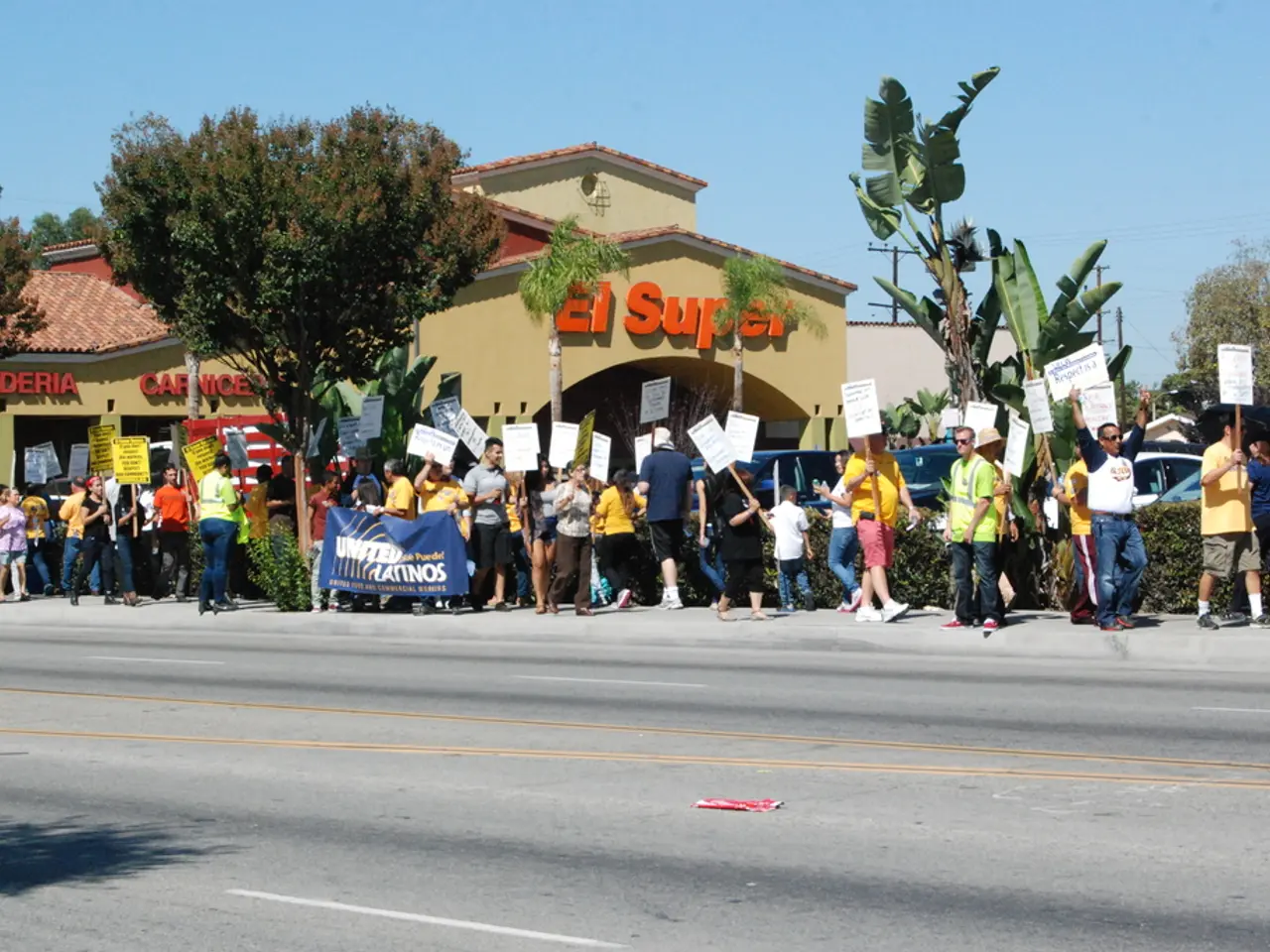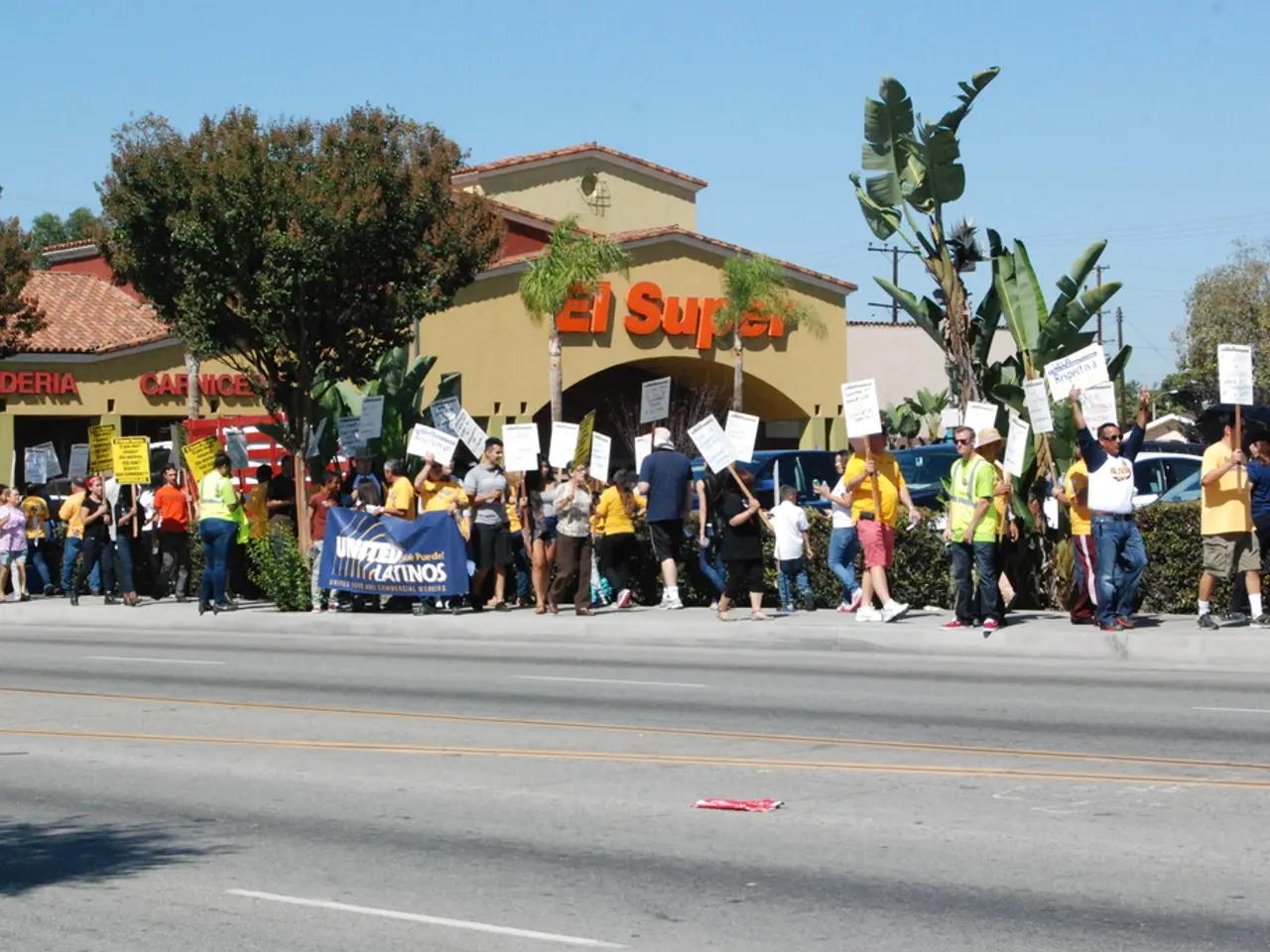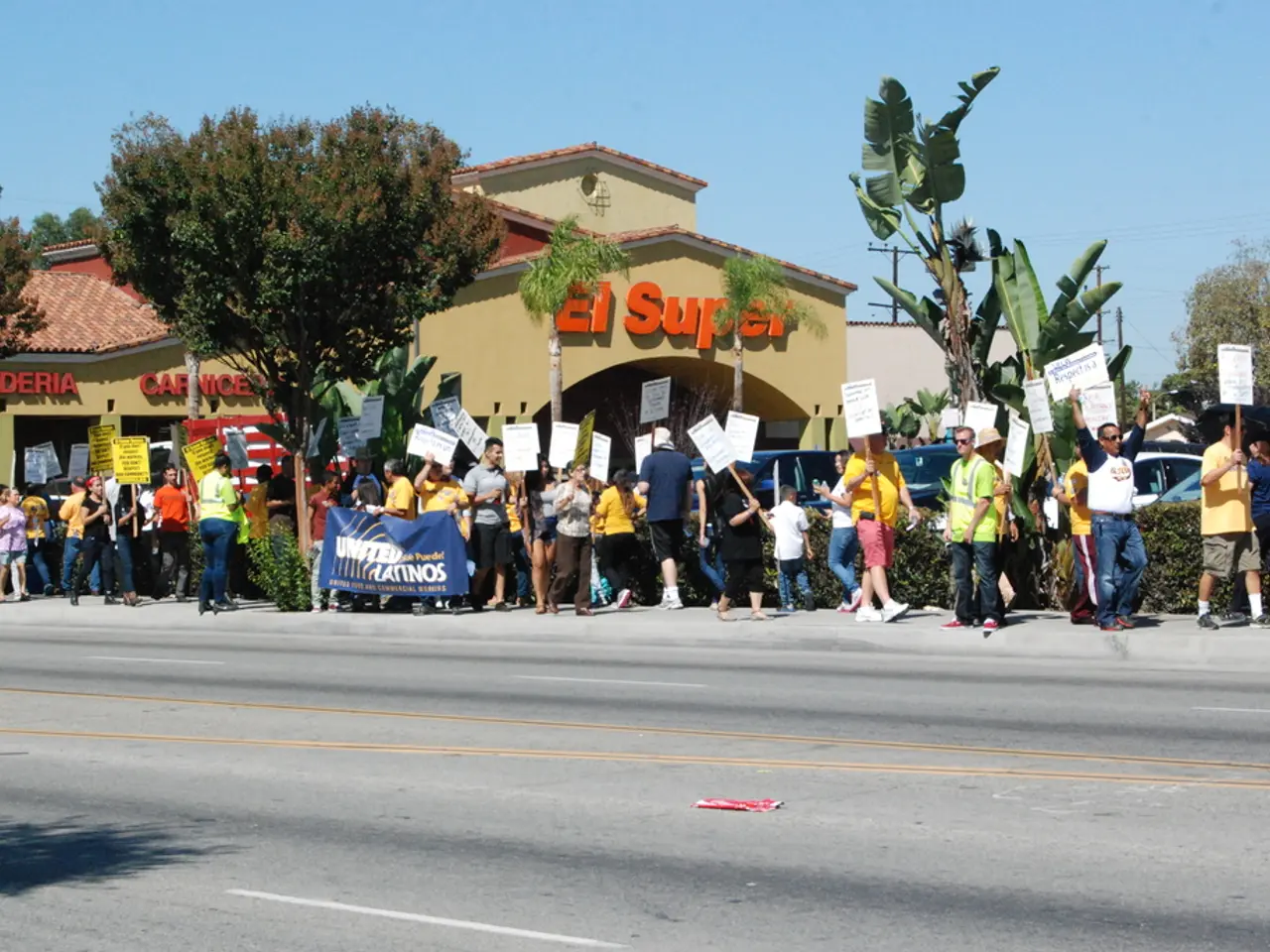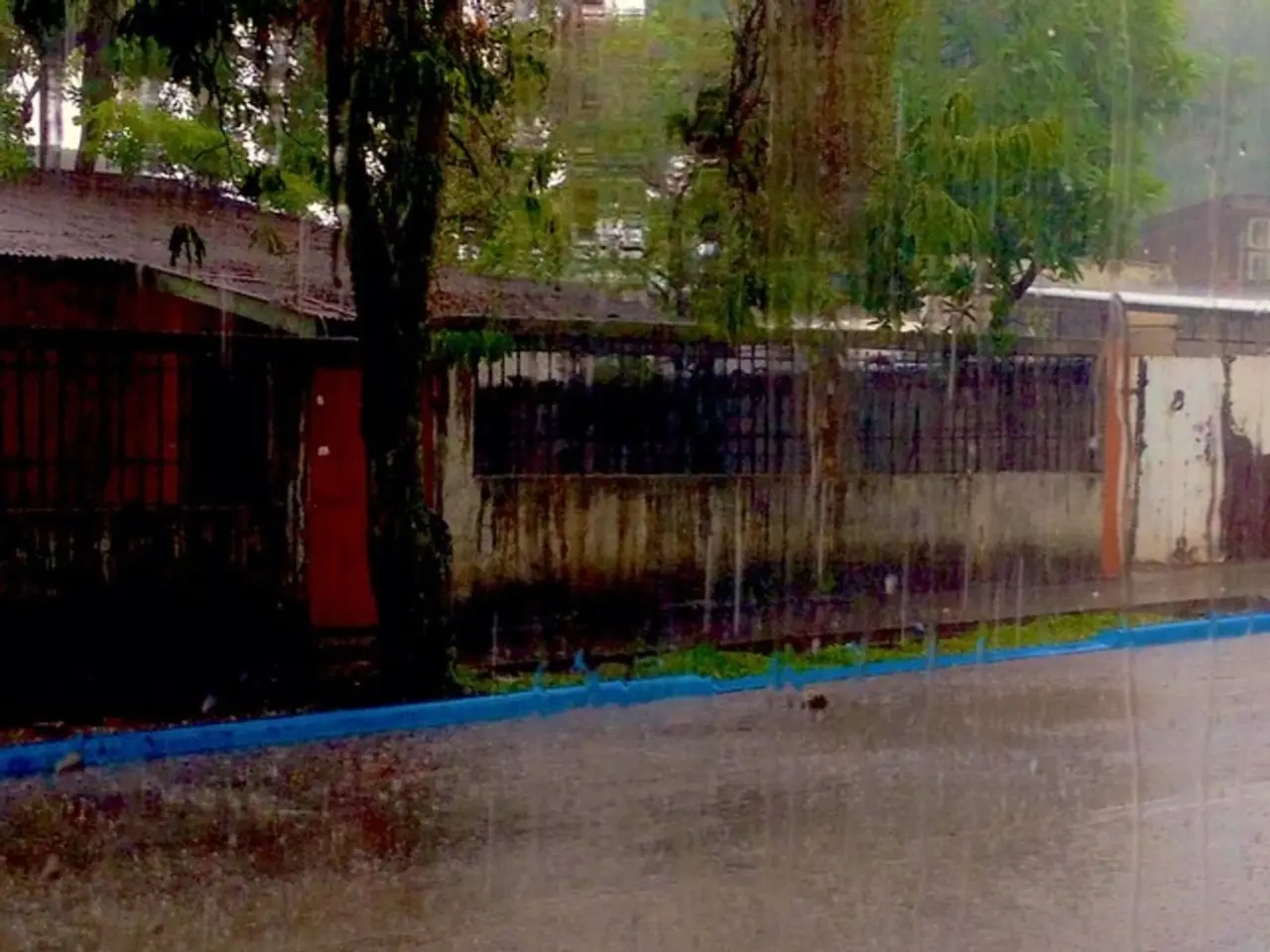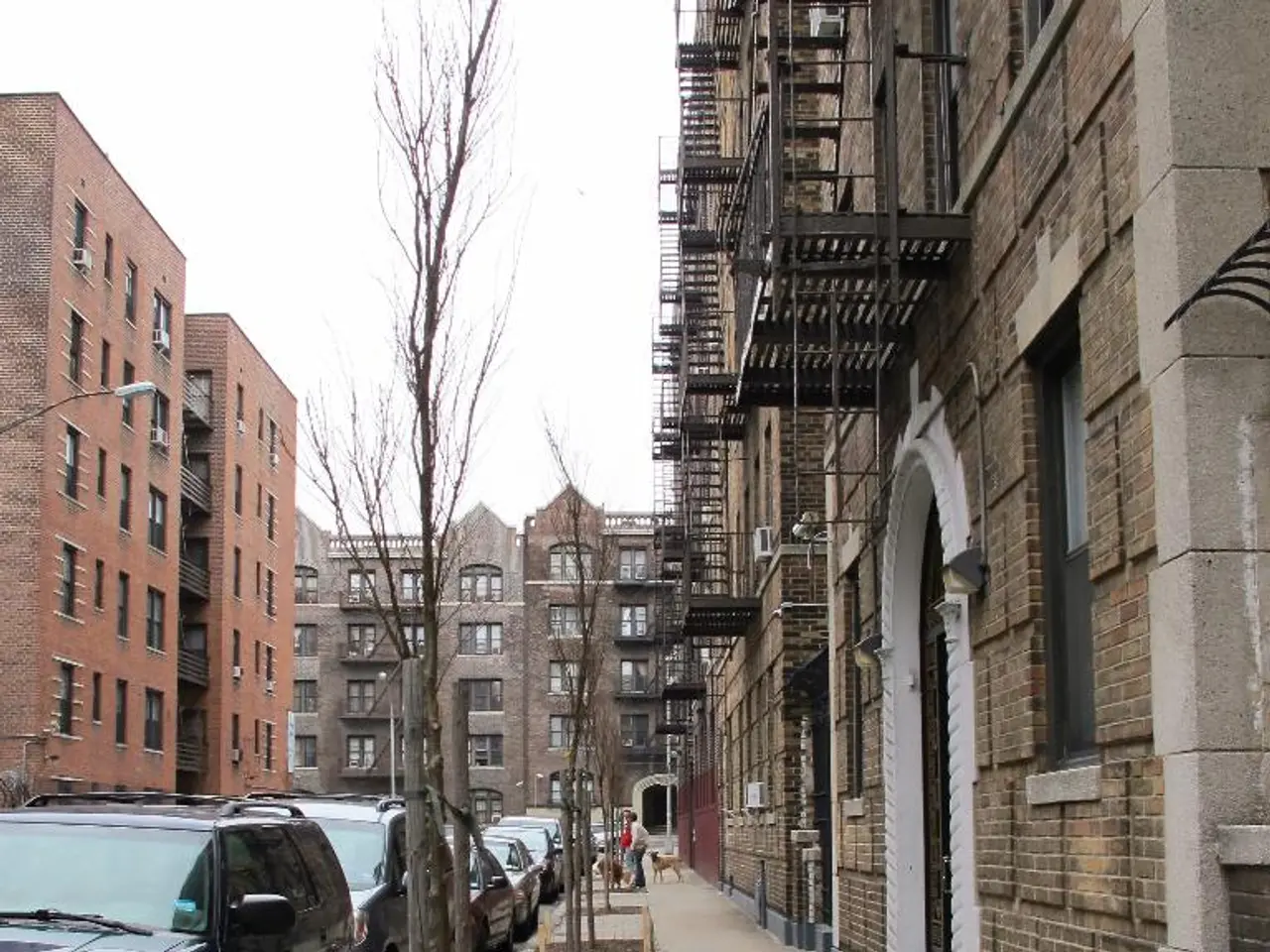Military operations in Gaza are temporarily halted for 10 hours, providing a window for humanitarian aid deliveries.
In the embattled region of Gaza, the ongoing conflict and humanitarian crisis continue to escalate, with the United Nations (UN) and other international organizations calling for immediate action to avert a potential famine.
UN aid chief Tom Fletcher has underscored the urgent need for far larger, sustained efforts to combat the looming threat of famine in Gaza. The situation is dire, with over 2.2 million people facing catastrophic food shortages, and recent reports of malnutrition-related deaths, particularly among children, skyrocketing. In July alone, dozens of children lost their lives due to malnutrition.
The UN officials have emphasized the importance of streamlined bureaucratic clearance to maximize truck convoy movement inside Gaza during the pause windows. However, delays in authorization undermine the effectiveness of these pauses, limiting deliveries to too few beneficiaries.
Israel has implemented a daily military pause from 10 a.m. to 8 p.m. local time in Gaza City, Deir al-Balah, and al-Mawasi. On the first day of the pause, over 100 aid trucks reportedly crossed into Gaza from Egypt. Yet, these efforts are far from sufficient to meet the urgent needs of the population.
Aid agencies have criticized the current volume of aid as insufficient, warning that temporary pauses cannot replace the need for full, sustained humanitarian corridors. They consider airdrops by Jordan and the UAE as inadequate relative to the need.
The ongoing violence undermines aid efforts, with multiple incidents of firing near distribution sites resulting in dozens more casualties. This raises concerns among aid workers about safety and neutrality violations. An airstrike reportedly killed a woman and her four children in Gaza City shortly after the initial halt began.
International organizations are addressing these challenges primarily by advocating for a ceasefire or pauses in hostilities to allow safer, scaled-up aid delivery. They are calling for the opening of all viable land crossings at scale with fast and consistent processing to enable unfettered humanitarian access.
The militarized and restrictive aid distribution system imposed by Israeli forces has been criticized for causing mass forced displacement, obstructing the most vulnerable populations from accessing aid, and failing to meet the scale of humanitarian need. Humanitarian plans emphasize measurable solutions that require cooperation from Israeli authorities, including safe corridors, reliable permissions, and protection for humanitarian workers.
UN agencies and other relief groups have also condemned the Gaza Humanitarian Fund (GHF), a scheme run by Israeli forces, for its unsafe distribution that bypasses established UN networks and leads to competition and insecurity among civilians seeking aid.
In conclusion, the interplay of ongoing conflict, security breakdown, and restrictive aid policies forms the core challenges to expanding humanitarian corridors in Gaza. International humanitarian organizations seek ceasefires, unrestricted access, and a return to established humanitarian distribution mechanisms to address these barriers effectively.
References: [1] Amnesty International. (2025). Israel/Palestine: Gaza Humanitarian Crisis - A Failing Humanitarian System. [online] Available at: https://www.amnesty.org/en/latest/news/2025/07/israelpalestine-gaza-humanitarian-crisis-a-failing-humanitarian-system/
[2] Human Rights Watch. (2025). Israel/Palestine: Gaza: Aid Delays, Fatalities, and Forced Displacement. [online] Available at: https://www.hrw.org/news/2025/07/15/israelpalestine-gaza-aid-delays-fatalities-and-forced-displacement
[3] Oxfam. (2025). Gaza: A Humanitarian Crisis Worsening by the Day. [online] Available at: https://www.oxfam.org/en/pressroom/pressreleases/2025-07-15-gaza-humanitarian-crisis-worsening-day
- The ongoing conflict in Gaza, coupled with war-and-conflicts-related restrictions and humanitarian crises, has necessitated the UN to call for immediate action to prevent a potential famine.
- Amidst the dire food shortages in Gaza, debates on politics and general-news discussion have centered around the need for sustained efforts from international organizations to combat the looming threat of famine.

